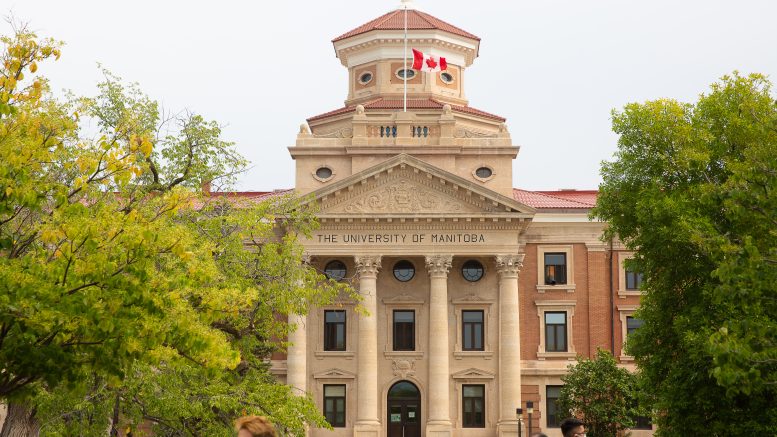The University of Manitoba is offering its support to students affected by the recent earthquakes in Turkey and Syria. The two countries were rocked by earthquakes last Monday that caused thousands of deaths and destroyed thousands of buildings.
At time of publication, more than 29,000 people in Turkey and over 3,500 people in Syria have lost their lives in the catastrophe, although rescue teams in Syria predict that the number of confirmed dead in their country will continue to increase. United Nations under-secretary-general for humanitarian affairs and emergency relief co-ordinator Martin Griffiths has predicted that the combined death toll from both countries will rise above 55,000.
The 7.5 and 7.8 magnitude earthquakes — the strongest to hit the region in almost a century — were felt in surrounding countries such as Lebanon, Armenia, Iraq, Cyprus, Egypt, Romania and Georgia.
In an online announcement, U of M vice-provost (students) Laurie Schnarr directed any who may need assistance to the variety of supports offered by the U of M.
“Any time a significant global event such as the earthquake in Turkey and Syria impacts our international students and those permanent residents who study and work here at the university we are concerned, and want to ensure that they know that we are concerned and that there are supports here for them,” Schnarr explained.
The U of M Spiritual Care and Multi-Faith Centre will be holding a Spaces for Solidarity event on Feb. 16 from 11:30 a.m. to 1 p.m. in room 521 A/B of University Centre. The meeting will offer a sharing support circle for Turkish and Syrian students to discuss their experiences in a safe space.
“Beyond that, one to one support of course is being offered as students need it through Spiritual Care, through the Student Counselling Centre,” Schnarr said.
Schnarr also expressed concern that students from Turkey or Syria may have difficulty contacting family or loved ones in their home countries.
She also worried that they might struggle to meet expenses for the rest of the term as a result, and said that the Financial Aid and Awards office is “waiting and ready” to assist any students who reach out.
“That’s why in my message to students yesterday, I shared all of the available resources including financial aid and awards, the food bank, the emergency bursary,” she said.
Students facing financial difficulties as a result of the earthquakes may access the university’s emergency bursary fund, established last year to provide monetary aid to those impacted by war, environmental catastrophe, international conflict and “extraordinary life events.”
The UM Foodbank — located at 518 University Centre and open Monday through Friday from 9 a.m. to 4 p.m. — is also available for students struggling with expenses.
Any student whose coursework is affected by the impact of the earthquakes should reach out to their instructor immediately to discuss options. Any requests for extensions or deferrals should be directed to relevant instructors or an advisor within a student’s faculty.
Additional academic support can be sought from Student Advocacy.
Schnarr also reminded students of other supports available, such as spiritual care providers with Spiritual Services and international student advisors with the U of M’s International Centre.
Faculty and staff may also access crisis supports such as the Employee Family Assistance Program, a service that allows U of M employees to access financial advice, wellness programming and legal support.
Student groups are also stepping up to help, with the University of Manitoba Muslim Students’ Association announcing that they will be donating the proceeds from their Friday Sales to those affected by the earthquakes.



